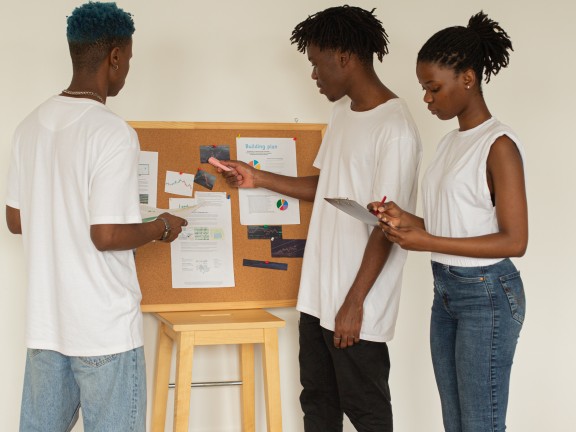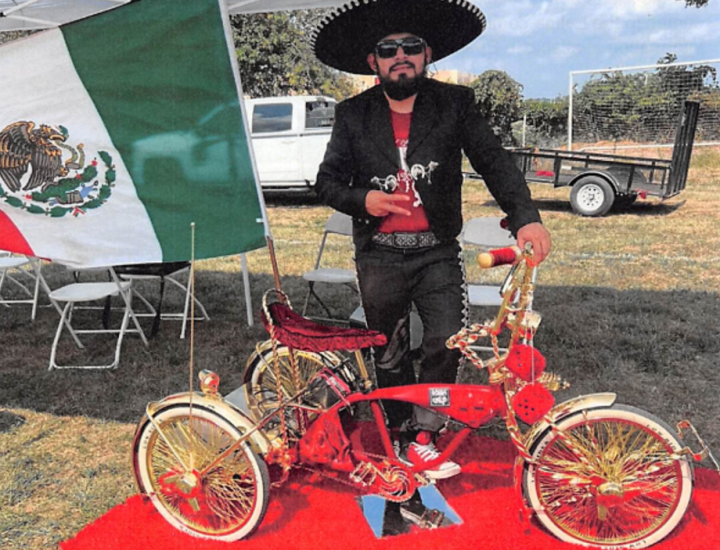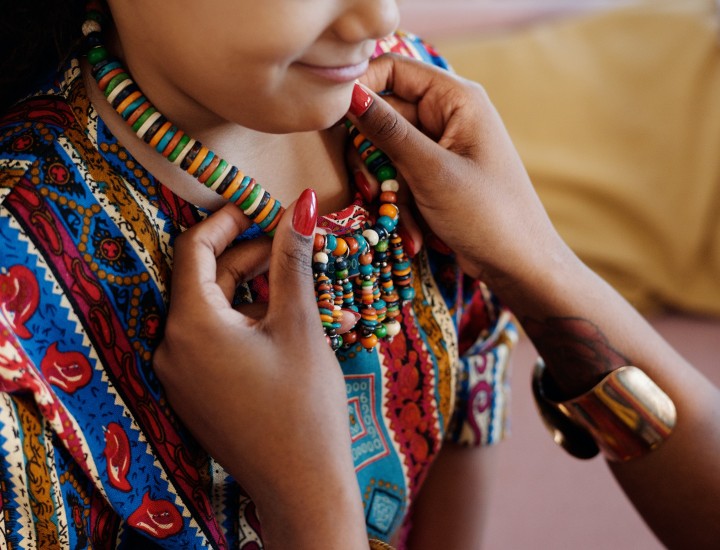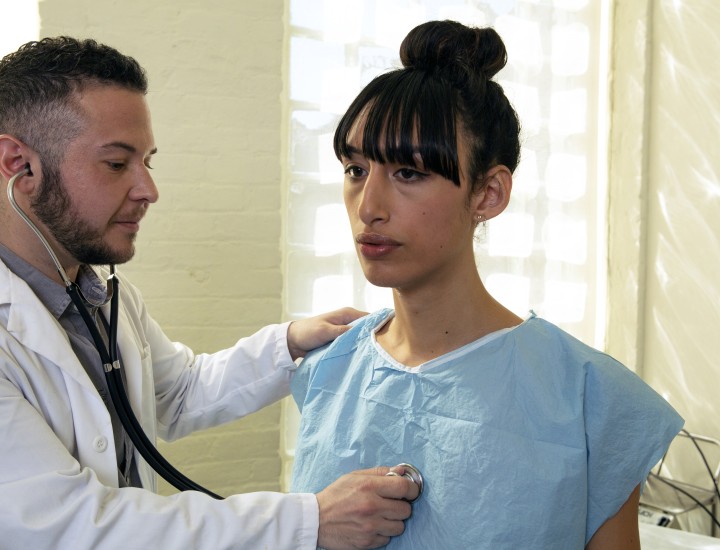Centering Equity in our Evaluation Practices: How HealthSpark is Rethinking Evaluation in Service of Equity

As HealthSpark continues on our journey to center equity and justice in our work, we have been asking ourselves “how do the tools and frameworks that we use as funders support or impede justice?”. A central tool, evaluation, has been a key driver of decision making in grantmaking. Evaluation can determine merit and ongoing investment. But as we think about justice and liberation, how has evaluation perpetuated harm and continued to marginalize certain communities, particularly, Black and Brown communities? At HealthSpark, we have been asking ourselves to unpack how we use and approach evaluation and challenge ourselves to imagine what evaluation would look like if equity and liberation were placed in the center.
In light of these challenging and complex questions, HealthSpark was ready to join Funders Together to End Homelessness in Equitable Evaluation Initiative's Making the Case Collaboratory. The Making the Case Collaboratory is a six month engagement and serves as the first step in learning more about Equitable Evaluation Framework in partnership with other foundations across the county. As a learning organization, it was critically important to us to think about how our approach to evaluation could be limiting our ability to support power-building in our community. It was also valuable to embark on this journey in partnership with other foundations where we could exchange ideas. Lastly, gaining clarity regarding our approach to evaluation was vital as we move along the spectrum from equity to justice to liberation.
Making the Case for A New Evaluation Framework
The Making the Case Collaboratory provided an entrée into the dynamic Equitable Evaluation Framework. Three principles ground the Equitable Evaluation Framework™:
- Evaluation and evaluative work should be in service of equity
- Evaluative work can and should be able to answer questions about:
- Ways in which historical and structural decisions have contributed to the condition to be addressed
- Effect of a strategy on different populations
- Effect of a strategy on the underlying systemic drivers of inequity
- Ways in which cultural context is tangled up in both structural conditions and the change initiative itself
EEF highlights how “evaluative work should be designed and implemented commensurate with the values underlying equity work (i.e., multi-culturally valid and oriented toward participant ownership). Addressing current orthodoxies and seeking ways to redefine the underpinnings of how we think about knowledge and evaluation. Concepts like: rigor, validity, bias, objectivity, evidence, and equity.”
Personally, I had to really work on the orthodoxies and struggled a bit with wrapping my brain around them, but once it became clear to me, I saw them everywhere. It is like when you see the arrow in the FedEx logo, you can't unsee it. That was my experience with the orthodoxies and how they show up in our work daily. Some of these orthodoxies included:
The foundation defines what success looks like.
Grantees and strategies are evaluated, but not the foundation.
The foundation is the primary user of evaluation.
Evaluations should provide generalizable lessons.
Evaluators should be selected based on credentials that reflect traditional notions of expertise.
Evaluators are the experts and final arbiters; grantees are beneficiaries.
Credible evidence comes from quantitative data and experimental research.
Montgomery County Partners Leading New Approaches to Evaluation
These are powerful and engrained orthodoxies that as funders we need to continue to uncover, unpack, and speak openly about as we think about our work and how we define success and impact. What has been most exciting is that we have had the opportunity to explore these concepts in collaboration with our grantee partners. The work that our community is doing is challenging these orthodoxies and creating a new paradigm around evaluations that centers equity. I would love to highlight three grantee partners that have informed our EEI journey by centering the community in their approach:
- Integrating Equity into Your Way Home's Assessment and Prioritization for House Stability Resources: This project undertaken by Your Way Home Montgomery County aims to research ways the housing & homeless service system can quickly and equitably provide housing without the use of a time-consuming, biased, and non-trauma-informed triage assessment tool.
- Conducting a Landscape Scan to Determine Readiness for a Youth-Led Community Collaborative: Grounded in research and a racial justice framework, National Network for Youth (NN4Y) aims to build a youth-centered safety net system for youth and young adults experiencing homelessness (YEH) in Montgomery County. Addressing the root causes of homelessness among young people, this proof of concept project will engage key stakeholders, shift power dynamics allowing the centering of youth voices, and realign relationships at the county level to improve youth outcomes and system functioning. The focus of this pilot project is to conduct a landscape scan to assess the community's readiness to pursue a long-term, youth-led collaborative approach to system change. The scan aims to serve as a launch point to deepen the region's efforts to ensure YEH in Montgomery County have access to high-quality, coordinated, equitable, and culturally appropriate services.
- Centro de Cultura Arte Trabajo y Educacion (CCATE) Norristown Latinx Community Health Census: CCATE's Health Circle, through a partnership with Curamericas Global, is collecting data through a community health census on the health needs and concerns of Latinx immigrant families in Norristown, PA. Based on the data they collect, they will develop both short and long-term health projects, as well as programs and events, to foster change and awareness around these issues.
Moving from Theory to Practice
HealthSpark has now entered the next phase of our work with EEI as an Equitable Evaluation Framework (EEF) Practice Partner. It was clear to us that we needed to dig deeper to better understand how we would approach evaluation as we center equity in our work. So, we made a commitment to join a growing group of funders across the country as an EEF Practice Partner. Over the next two years, HealthSpark will seek to support and advance:
- A vision of evaluation practice that can better serve all people, toward creating a world in which we can all thrive.
- Shared inquiry in the evaluation and equity ecosystem about all aspects of the evaluative process.
- Expansion of evaluation practice that challenges and embraces new pathways for and concepts of validity, rigor, and complexity
- Creation of a sustainable field of EEF practitioners
We look forward to sharing with you our learnings along the way and remain in dialogue with you via our Communities of Practice and Learning Communities. We are eager to be in conversation with you all regarding how we can leverage evaluation to support justice and liberation.


